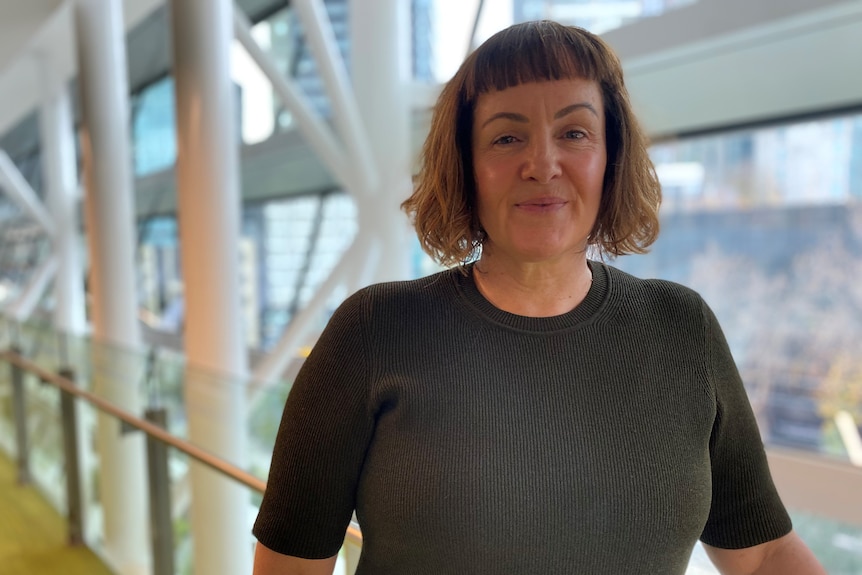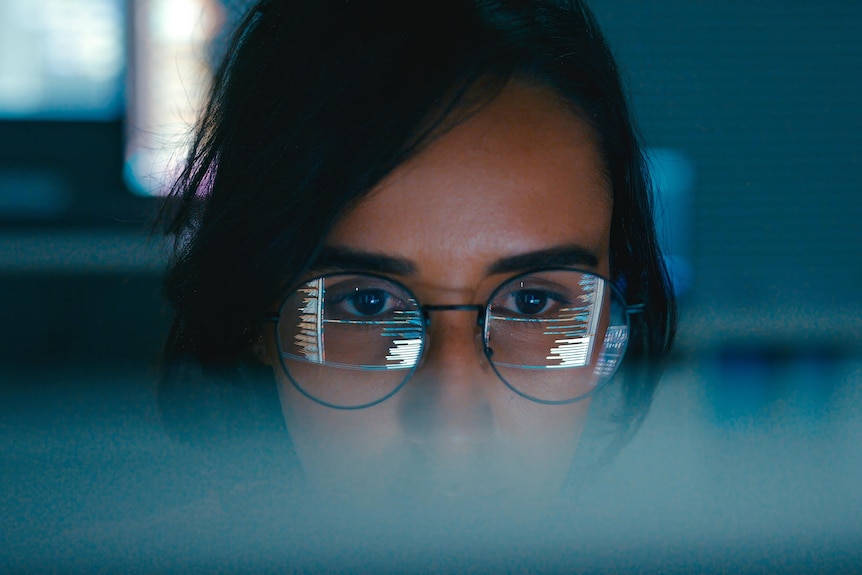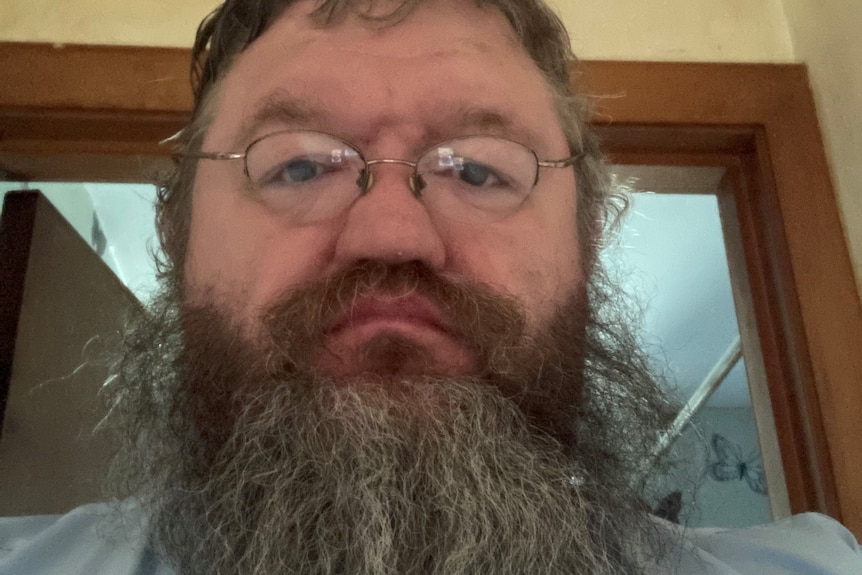These conspiracy believers thought vaccines were used to control us before something changed their minds
When Joel Hill’s friend and sister were both seriously ill, and needed medical intervention to stay alive, it threw his world of conspiracy theory beliefs into chaos.
Joel, who lives in Sydney, was born into conspiracy theories, in a family where alternative beliefs were shared. He grew up being congratulated by adults around him for his knowledge about conspiracies.
They included theories like the government is “trying to dumb us down with fluoride in the water … to make sure that you don’t revolt and overthrow the government, because they’re inherently evil” — and that modern medicine is “the enemy”.
He believed vaccines were poison designed to make people more sick so they had to buy more medicine.
It wasn’t always a very positive existence.
“[The idea that] there will always be a bad guy who is two steps ahead of you and has something very unpleasant planned for your future — that kind of sucks,” he tells ABC RN’s All in the Mind.
Melbourne-based Jules Diamond, a former conspiracy believer and ex-anti-vaxxer, also distrusted medicine, as well as the government.
“I wouldn’t even take painkillers … I really took literally that my body could heal itself,” she says.
She first encountered conspiracies when she was 15 and homeless, and came into contact with a very insular, alternative community in New Zealand.
She says they took her in on the condition that she took on the beliefs of the group, like “the government lied to you [and] they’re tracking your phone”.

Both Jules and Joel now firmly reject their past beliefs, but getting to this point hasn’t been easy.
Along with two other former conspiracists, they explain how they escaped the rabbit hole — and what prompted them to change their minds.
How do you get out of the rabbit hole?
A traumatic childhood experience and being completely abandoned as a young person led Jules into homelessness.
“I was really desperate for meaning and understanding, I was just trying to make sense of everything,” she says.
The ideas the alternative group in New Zealand introduced her to were, she says, “keeping me together”.
“Those ideas were making me who I was.”
But years later, she’d moved to Australia and cut ties with that group. And while she held onto her old beliefs for a long time, they finally started to waver when she found a new community of friends in her late-30s.
Powerfully, they accepted her not because of her ideologies, but just because of who she was.
“I actually get emotional when I think about that, because I think that’s the key thing, is that being accepted, which I didn’t get because I was rejected. I think that was definitely the beginning,” she says.
Another turning point was a confronting conversation with her son.
“He basically said to me, ‘You’re stupid. You’ve made the wrong decision. You’re an idiot.’
“And I just knew it was a moment where I needed to meet my son and I needed to be the adult and I needed to change my mind. And I needed to educate myself.”
Conspiracy theories shift to the right
Joel’s faith in conspiracy theories started to waver around the time when US president Barack Obama was elected and “a lot of the conspiratorial usual suspects … became a lot more right wing”.
He says blatant anti-Semitism was starting to linger around the edges of some conspiracy theories, and climate change denial was creeping in too, which didn’t align with his politics.
“I didn’t stop believing in conspiracy theories, I became repelled by them, sort of disgusted by a lot of the voices that I used to respect,” he says.
Then his big-pharma conspiracy theories started to come undone when the power of mainstream medicine hit very close to home.
“My podcast co-host, Peter Hoysted, had cancer and survived through a lot of medical intervention and he would have absolutely died otherwise. My sister [had] brain tumours [and] medical science has kept her alive and that is definitely for the betterment of society.
“It’s really hard to see your good friend and your sister saved by the enemy and then still consider it to be evil,” he says.
Finally leaving the world of conspiracy theories was a relief.
“Back then I was much angrier … I was slightly more narcissistic,” he says.
“When you don’t feel that those [beliefs] are things you rely on to have a sense of self, or a sense of person, that can be quite liberating.”
Escaping the QAnon rabbit hole
When Erica (surname withheld) was most entrenched in the conspiracy theory movement, she wasn’t sleeping properly, her weight had plummeted and she was snapping at her kids.
Her behaviour had changed; she was hateful, paranoid.
“People thought that I was losing my mind — and I was,” she says.

For around a decade Erica had held false beliefs like climate change is a hoax and mass shootings are staged by US government anti-gun lobbyists.
“At first it was fun, you know, finding little clues … it didn’t feel harmful,” says US-based Erica.
Then, in late 2017, she signed up for Twitter, now known as X.
“It was probably the worst thing I’ve ever done. It ruined my life … Pretty much from there I was gone,” she says.
It was on that social media platform that she encountered the conspiracy theory QAnon, whose believers broadly and falsely claim that Donald Trump is waging a secret war against corrupt and child-abusing elites, including parts of government or the “deep state”.
“They believe that Trump is there to save the world from the child-eating paedophilic Democrats of the world,” Erica says.
Over the next couple of years she became so involved with QAnon that she was recruited as an admin for its Telegram (encrypted messaging platform) channels. Her job was to look out for any “nefarious actors” in the channel.
This might include, for example, someone criticising a QAnon higher-up.
It was extremely taxing work and to keep up with it, Erica, a single mum, was spending 18 to 20 hours a day on her phone.
“I unfortunately got stuck with the night shift most of the time [despite QAnon organisers] knowing that I was a single mum,” she says.
“These people wouldn’t care.”
‘Silly’ vs serious conspiracies
US-based QAnon expert and former conspiracy theorist Mike Rain (not his real surname) says it’s important to distinguish between “regular conspiracy theories” and what he calls “grand unifying conspiracy theories” — such as QAnon.

“A regular conspiracy theory could be stuff like Bigfoot, the Loch Ness Monster … these little silly niche things,” Mike says.
“A grand unifying conspiracy theory explains the whole world and everything that’s going on with it. It explains why there was an earthquake, why there was a mass shooting, why the president was elected and who elected him, why COVID happened.
“The prism of reality gets completely distorted.”
And the tone of these kinds of theories is consistently negative.
“[They] are basically saying the world sucks … Bad people run everything. We’re screwed,” Mike says.
“You wake up every day and you’re mad at the world.
“So many of these conspiracy theorists will make posts about how ‘I can’t follow sports anymore because it’s rigged’. ‘I can’t listen to music anymore because I know it’s all done by Satan to brainwash me.’ ‘I can’t watch movies because I know it’s all Illuminati propaganda.’
“You just create this cocoon around yourself where you can’t enjoy anything, because the world is bad and that makes it really bleak and miserable.”
Mike says he was only a few steps away from tipping over into grand unifying conspiracies before he managed to get out.
He spent years believing the JFK assassination was staged by the US government and former president George W Bush was behind the 9/11 terrorist attacks in 2001.
His turning point came in 2004 when a friend called him a “moron” for thinking that then-resident Bush orchestrated the 9/11 attacks. It was a jarring moment.
“My mindset was just that everyone believed as I believed. I thought that all liberals hated George W Bush and we all thought he did 9/11 and that was just standard.”
It shook him to learn that wasn’t the case, and to realise “I was actually fringe”.
“I was the person buying into crank stuff … It really changed my perspective,” he says.
Craving ‘something normal’
Erica’s moment of change came after she began noticing something shocking in one of the Telegram channels she was responsible for tracking, which focused on debunking QAnon theories.
“These [non-conspiracists] were Republicans and Democrats … and they got along, they could have conversations with each other,” she says.
“Watching it was fascinating because I thought, well, I kind of want that.
“I want to talk about something normal.”
Her curiosity tipped over into action one day, when she contacted the owner of the channel, who connected Erica with an expert in QAnon — a woman whose family member had fallen into its clutches.
“That person, she saved me,” Erica says, beginning to cry.
Erica had questions, and the woman gave answers, offering up detail from disinformation experts and QAnon watchers.
“She was gentle, it was baby steps. It’s like learning to walk all over again.”
Erica stopped being an admin for QAnon in 2021. At first, she kept her head down and tried to become invisible.
“I was scared. You know, these people had doxxed me [published her identifying information online] … They had threatened me.
“Leaving can be dangerous, especially if people know who you are.”
Slowly, she built a support system around herself of other former conspiracy believers, who encouraged her to exit safely.
And today, she chooses not to be anonymous any more.
“I took that power away from them. This was me deciding, OK, I’m comfortable now, speaking. I’m comfortable at where I am in my reformation. I’m comfortable with the support system I have that’s got my back,” she says.
“It’s really freeing to talk about it. But it’s also freeing to help people. To be like, it’s possible, you know. Let me tell you what happened with me. Don’t give up hope yet.”
RN in your inbox
Get more stories that go beyond the news cycle with our weekly newsletter.


